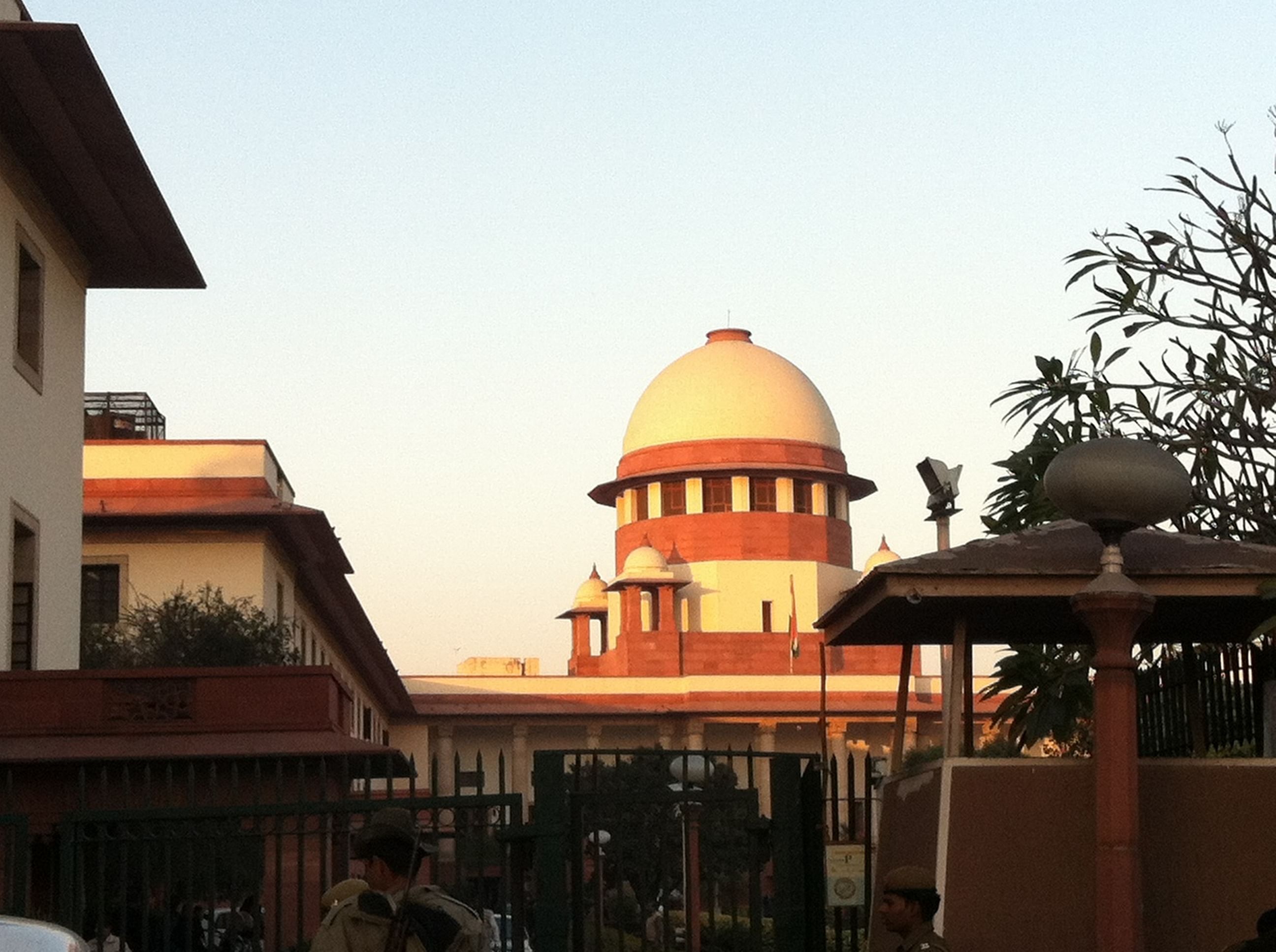

As the term of the longest-serving Chief Minister of Karnataka in three decades, Siddaramaiah, draws to a close, Karnataka's next Chief Minister will once again be B S Yeddyurappa, the BJP's candidate and Lingayat leader from Shivamogga district. However, it is not clear how long Yeddyurappa's term might last since the BJP has not publicly said how they will meet the 8-seat gap they are currently facing to win the majority in the Assembly.
A special bench of India's apex court said it will not withhold the swearing-in of B S Yeddyurappa 9 AM (IST) on Thursday as CM of Karnataka after a pre-dawn hearing on Thursday.
After hearing arguments from both sides the Supreme Court of India said it would not interfere in the decision of Governor Vajubhai R Vala's decision to invite the BJP to form the new government and prove its majority in a Floor Test in the Assembly. The court issued a notice to CM candidate Yeddyurappa and asked his lawyer to appear before the court. The court also asked Yeddyurappa to produce the letters that were given to the Governor, in which the BJP staked its claim to form the government.
The Janata Dal (Secular)-Congress combine approached the Supreme Court of India on Wednesday night. Chief Justice of India Dipak Misra agreed to constitute a bench comprising Justices A K Sikri, Arvind Bobde and Ashok Bhushan to hear their plea. The JD(S)-Congress alliance asked the court to deem the decision of Karnataka Governor Vajubhai Vala inviting B S Yeddyurappa and the Bharatiya Janata Party (BJP) to form the government as illegal and unconstitutional because the BJP is 8 seats short of being able to form a majority in the Assembly.
The hearing, which began just after 2.00 AM on Thursday, featured senior lawyer Abhishek Manu Singhvi for the Congress-JD(S), former Attorney General for India Mukul Rohatgi appeared for two BJP elected representatives and Attorney General for India K K Venugopal for the Union of India (Central government).
Attorney General for India K K Venugopal alleged that some of the signatures obtained by the JD(S)-Congress alliance from their elected representatives could be fake. Venugopal appeared on behalf of the Union government. He also said to the judges that the court cannot restrain the swearing-in of B S Yeddyurappa as the next Chief Minister of Karnataka because the court doesn't know how many elected representatives the BJP has on its side.
The arguments were made in the aftermath of a fractured people's mandate in Karnataka, which continued to keep a question mark on who will form the government in the state. The political tussle reached India's top court late on Wednesday night. After declining to stay the swearing-in ceremony of Yeddyurappa, the court continued to hear the case till 5.45 AM.
Venugopal also relied on a technical point, arguing that the anti-defection law does not apply to elected representatives until they are sworn in as Members of the Legislative Assembly (MLAs). This was in response to Singhvi's charge that elected representatives might be approached to switch sides, thereby attracting penal provisions under the anti-defection law.
The writ petition was filed by the Congress-JD(S) after it was announced on Wednesday at around 9 pm (IST) that Governor Vala had invited Yeddyurappa to be sworn in at 9 am on Thursday, 17 May 2018. The Congress-JD(S) alliance accused the BJP state and central leadership of subverting democracy and the constitution by trying to form a government without an openly disclosed majority. The alliance is wary of the BJP poaching its elected representatives. Both the parties have a combined 117 seats according to the Election Commission results, while the BJP has 104. The majority mark is at 112. However, during the course of the hearing, lawyers for the BJP and the Union government claimed that the BJP in Karnataka had a majority number in place.
Earlier in the hearing, when Singhvi was arguing for the Congress-JD(S), the court asked if they could stay the orders of a Governor. The judges also asked on what basis they could postpone the swearing-in ceremony.
A late night hearing of this nature by the Supreme Court of India is almost unprecedented. The last time this happened was in 2015 when the court heard the petition of Yakub Memon, who was facing the gallows.
In this case, Singhvi tweeted earlier that the decision by the Governor to invite Yeddyurappa to form a government in the morning had by itself created the exigency for the immediate hearing. Singhvi also expressed his gratitude to the court for allowing a hearing of this nature. “Irrespective of merits, very gracious of SC to fix the hearing at 1.45 PM at ct no 2. Shows justice never sleeps & accessibility is 24x7, where merits so demand. Which apex court in the world allows such accessibility?” he said on Twitter.
During the hearing, Rohatgi asked why it was necessary to have his hearing at this hour. But the judges said since the CJI had constituted the bench, they would continue to hear the case.
The pre-dawn hearing took place inside a packed Court Room No. 6.
